How Diane Warren's 'I'm Standing With You' Unites the World to Benefit WHO's COVID-19 Fight (Video)
Guest Blog: “People could instantly connect from all around the world without the need for them to be at the event,” organizer Sharon Farber says
by Richard StellarIt’s been almost 35 years since Bob Geldof and Midge Ure floated the idea of a global music-based event, Live Aid, to raise awareness and support against what BBC News called “the closest thing to hell on Earth.” The world’s attention was drawn to the 1985 crisis in Ethiopia — a famine so dire that it was referred to as “biblical” in scope and responsible for the deaths of millions.
We were one back then, seduced by a greater moral imperative, evangelized through Marshall amps and the voices of dozens of rock and pop stars. We never thought that we would be so splintered, so torn between two ideologies that it would take a pandemic to bring us together, albeit temporarily, over an Academy Award-nominated song written by a celebrated song writer.
In the place of Geldof and Ure are composer-arranger Sharon Farber and director Gev Miron, two Israeli-American artists who teamed with Oscar-nominated songwriter Diane Warren to create what many thought impossible: a global project that unified over 170 musicians, singers, performance and digital artists who for a few minutes united our splintered selves against an enemy that knows no political affiliation.
“I’m Standing With You — A Musical Collaboration in Support of COVID-19 Solidarity Response Fund” supports the beleaguered United Nations Foundation and the World Health Organization, global groups whose work is being threatened and called into question in the midst of this pandemic. Instead of defunding, “I’m Standing With You” fuels the work that these organizations do. The artists who joined in allegiance with WHO did it not from the stage at Wembley or Philadelphia’s JFK Stadium. They did it from their own homes and studios, stitched together and sync’d into a tightly compelling video, singing in unison a song that speaks of empathy and faith.
There is no more appropriate song to bring people together than Warren’s “I’m Standing With You” – even if our stance is now socially distanced. Farber and Miron closed that gap so that we now stand shoulder to shoulder, unified against a common enemy. “As a composer in the digital age, I’m used to collaborating digitally,” Farber explained. “Although I miss the human connection, I believe we touched on what humanity is all about, through the universal power of music via the advantages that technology allows, to convey that we are all one.”
Miron, who directed the project, was philosophical. “The good thing was that people could instantly connect from all around the world without the need for them to be at the event,” he said. “This was an incredibly complex production not just because we had to do everything remotely, but also because the amount of footage that needed to be collected, synced and edited was enormous.”
Originally written for the 2019 movie “Breakthrough,” Warren’s Oscar-nominated song sounded a rallying cry that “would go beyond the movie,” Warren said. “We need to stand with our fellow humans, stand with our animal friends. Choose kindness over cruelty,” she said. “I never dreamed almost 200 singers from every continent on the planet would be singing and playing it together from their homes and it would have this kind of impact.”
Farber assembled a diverse orchestra composed mainly of medical workers. “When we started the project, it was meant to be much smaller, but I contacted conductor Libi Lebel, who brought in the Texas Medical Center Orchestra, and all of a sudden I had 73 musicians who all wanted to participate,” she said. “I expanded the arrangement to include a full orchestra and added the voices of Patrick Bolton’s Spirit of David Choir, who I’ve worked with before, as well as 60 Los Angeles-based singers and instrumentalists. I sent all the material out and then the videos started pouring in and it was massive! While I worked on the mix with mixing engineer Michael Stern, Gev took all of this content and created an amazingly beautiful video.”
“We could have very easily done a Zoom music video,” Miron explained, “and it’s been done many times. I wanted to connect to people on a different level, to show them that we are all ‘standing together,’ and for me that meant showing people the world, their cities, the places they call home, the way they are right now.”
Live Aid was a logistical nightmare that cost over $20 million to produce and was seen by an audience of 89,484 live concert-viewers crammed into two venues, in England and Philadelphia. Live Aid, like its predecessor, the Concert for Bangladesh, articulated the power of art as salvation, and served as a template for similar events in a pre-COVID world.
The new template for global aid is as much about technology as talent, where programmers and percussionists co-exist for the salvation of mankind. Although it may pale in comparison with the Ethiopian catastrophe, the potential flies in the face of repeated early assurances that the virus was “nothing to fear.” With over 100,000 deaths recorded in the U.S. so far, the pandemic has commanded our attention — and once again, artistry trumps politics when it comes to raising our awareness and galvanizing our concern.
Warren might have summed up the feeling of community and solidarity best: “It really proved the old saying to be forever true: Music is and will always be the universal language.”
Watch the full video above.
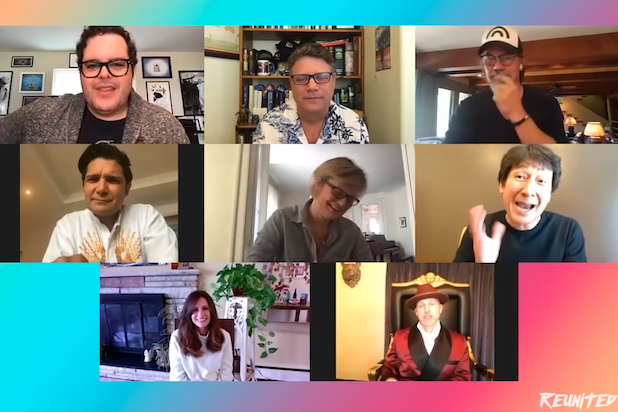

On April 27, Josh Gad hosted a reunion with almost the entire full cast of the '80s cult classic "The Goonies," including Sean Astin, Josh Brolin, Martha Plimpton, Kerri Green, Jeff Cohen, Ke Huy Qyan, Corey Feldman, Joe Pantoliano and Robert Davi. Gad also spoke with writer Chris Columbus and even got the 90-year-old director Richard Donner to join the call, though not without some technical difficulties first. The cast asked each other questions about what reactions they get from fans and even re-enacted a handful of scenes from the film.Warner Bros.
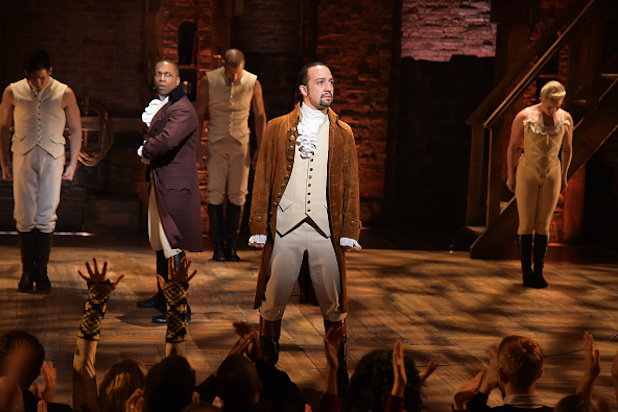
After John Krasinski had a wave of support for the first episode his makeshift YouTube series "Some Good News" in which he chatted with his co-star on "The Office" Steve Carell, he then surprised a fan of "Mary Poppins Returns" who said her favorite musical was "Hamilton" and that she missed out on a performance of the show because of the coronavirus. Lin-Manuel Miranda then brought together the cast of the original Broadway production, including Daveed Diggs, Leslie Odom Jr, Okieriete Onaodowan, Phillipa Soo, Christopher Jackson, Anthony Ramos, Jasmine Cephas Jones, Renée Elise Goldsberry and Jonathan Groff, to sing the show's opening number.Photo by Theo Wargo/WireImage
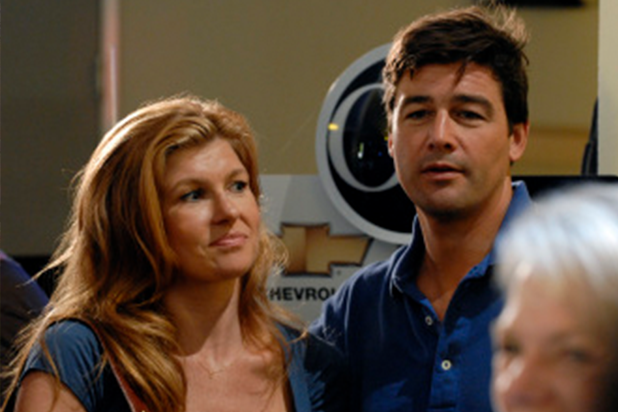
The cast of the TV series "Friday Night Lights" reunited for Global Citizen's "Together at Home," with the cast specifically gathering to virtually watch the pilot episode of the series. Adrianne Palicki, Scott Porter, Derek Phillips, Aimee Teegarden, Gaius Charles and Brad Leland took part, though stars Kyle Chandler and Connie Britton couldn't attend. On the Zoom call, the cast also recalled how competitive actor Taylor Kitsch was playing flag football.NBC
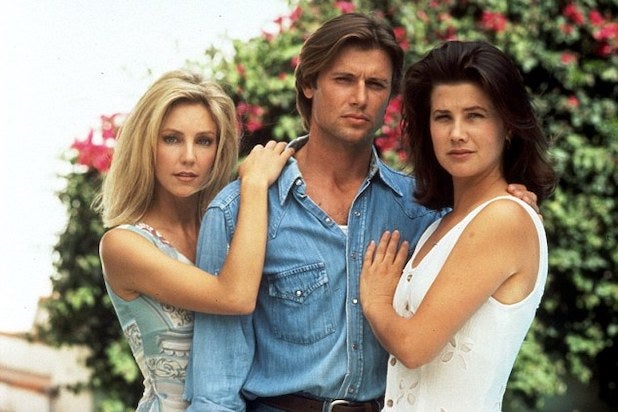
For the first time since 2012, Heather Locklear and the cast of "Melrose Place" reunited as part of the YouTube series "Stars in the House" to support The Actors Fund. Josie Bissett, Thomas Calabro, Marcia Cross, Laura Leighton, Heather Locklear, Doug Savant, Grant Show, Andrew Shue, Courtney Thorne-Smith and Daphne Zuniga all took part to reminisce about the soapy Fox drama.Fox

While not strictly a reunion, the cast of Steven Soderbergh's pandemic outbreak drama "Contagion" banded together to help provide PSAs with advice about social distancing, hand washing and more. Matt Damon, Kate Winslet, Laurence Fishburne and Jennifer Ehle were among the first set to record the informational videos, which were made in partnership with Columbia University’s Mailman School of Public Health, the same school that also consulted on "Contagion" the film.Warner Bros.
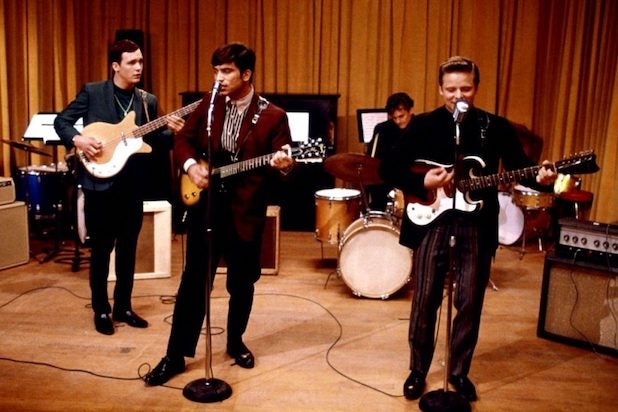
The members of the fictional band The Wonders (or The Oneders) from Tom Hanks' film "That Thing You Do!" reunited for the first time since the film's release in 1996. Band members Tom Everett Scott, Johnathon Schaech, Ethan Embry and Steve Zahn all joined up with co-star Liv Tyler in honor of Adam Schlesinger. Schlesinger wrote the Oscar-nominated title song from the film and shortly before the reunion died of COVID-19.Twentieth Century Fox
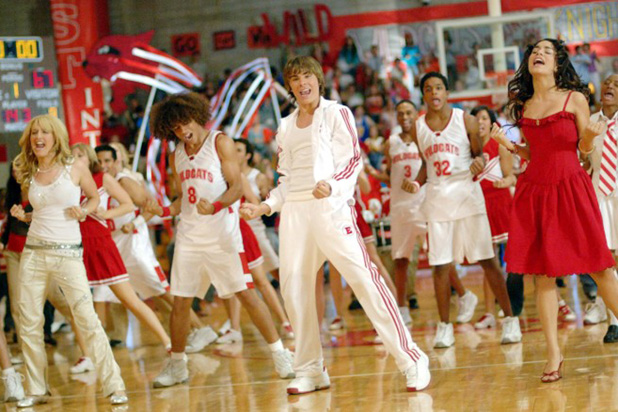
The cast of "High School Musical" didn't stream their Zoom reunion call, which from Instagram photos shared by the cast included director Kenny Ortega along with Truman Alfaro, Vanessa Hudgens, Paul Becker, Corbin Bleu, Monique Coleman, Lucas Grabeel and Ashley Tisdale. They did however participate in Disney's "Family Singalong" show, with star Zac Efron delivering a special message in lieu of being able to perform.Disney Channel
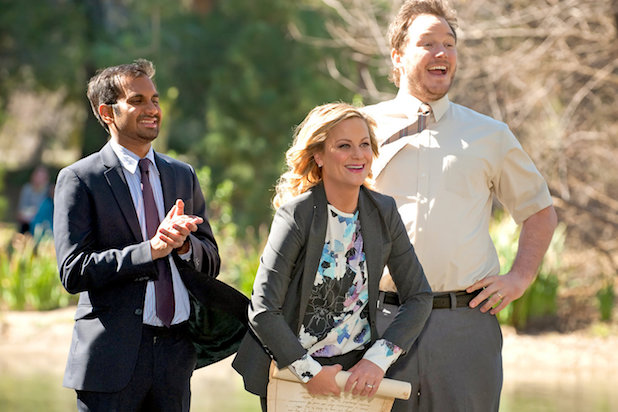
The cast of "Parks and Recreation" performed an entire virtual episode as part of a standalone, scripted special on NBC inspired by social distancing. Amy Poehler, Rashida Jones, Aziz Ansari, Nick Offerman, Aubrey Plaza, Chris Pratt, Adam Scott, Rob Lowe, Jim O'Heir and Retta all reprised their roles from the sitcom series to raise money for Feeding America's COVID-19 Response Fund. The episode aired Thursday, April 30 on NBC.NBC
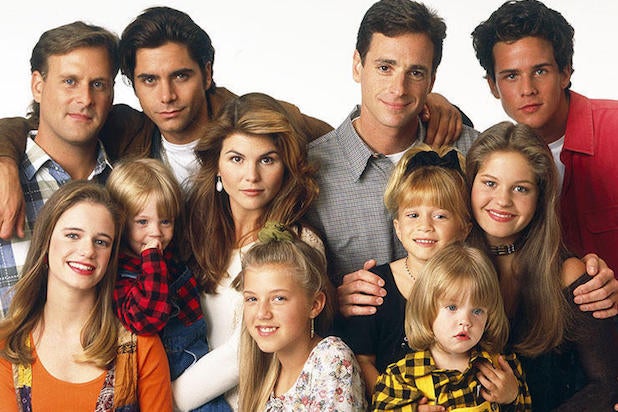
The cast of "Full House," including John Stamos, Bob Saget, Dave Coulier, Candace Cameron Bure, Jodie Sweetin, Andrea Barber and creator Jeff Franklin, all imagined a parody intro to their famous '90s sitcom for a brief TikTok video they called "Full Quarantine." It showed Saget sanitizing a Swiffer and Coulier fishing a slice of pizza out of a pond and ended with the caption, "unlike 'Full House,' this will all go away."Photo by ABC Photo Archives/ABC via Getty Images
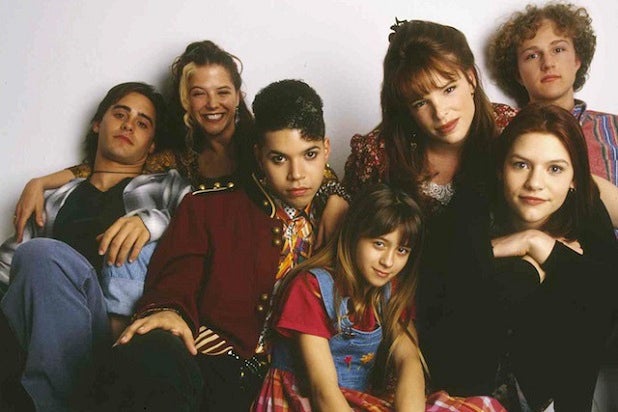
The cast of the sitcom "My So-Called Life" held a private Zoom reunion call that included Wilson Cruz, Claire Danes, Bess Armstrong, Devon Odessa, Tom Irwin, Mary Kay Place, Devon Gummersall and A.J. Langer. The series creator Winnie Holzman and her husband Paul Dooley also joined the call, though Jared Leto was not present.ABC
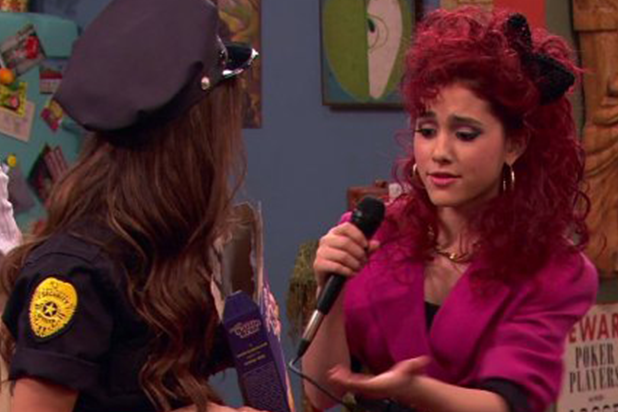
The stars of the Nickelodeon TV series "Victorious," featuring Victoria Justice and Ariana Grande, were already meant to gather around this time for the 10th anniversary of the series, but instead did so virtually. Elizabeth Gillies, Leon Thomas III, Matt Bennett, Avan Jogia, Daniella Monet and Eric Lange, as well as the show’s creator Dan Schneider, all participated in the call along with Grande and Justice.Nickelodeon
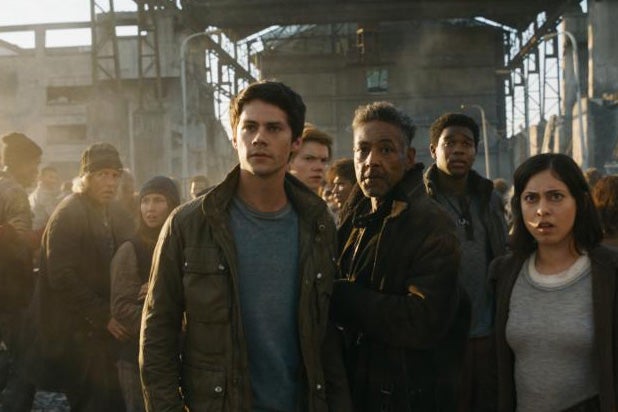
"The Maze Runner" actress Kaya Scodelario shared a screenshot on Instagram of her Zoom call with her co-stars from the YA adventure trilogy, including Dylan O’Brien, Will Poulter, Ki Hong Lee, Dexter Draden and Thomas Brodie-Sangster. "We survived the Glade, the Scorch & whatever the third one was about. We got this," Scodelario said in the post.20th Century Studios

The cast of the Disney Channel series "Jessie" dedicated their gathering to Cameron Boyce, who passed away last year at age 20. Star Debby Ryan appeared on the episode of "Stars at Home" along with Peyton List, Skai Jackson, Karan Brar and Kevin Chamberlin.Disney Channel

Another classic TV franchise with an unexpected reunion, the cast of the sitcom "Taxi" got together for an hour-long chat for "Stars in the House," including Danny DeVito, Judd Hirsch, Carol Kane, Christopher Lloyd and Marilu Henner.NBC

EW rallied the cast and crew of the NBC comedy series "Chuck" to not only reminisce about the show but also perform a table read of a fan-favorite episode from, the ninth episode of Season 3, "Chuck Versus the Beard." Zachary Levi, Yvonne Strahovski, Adam Baldwin, Joshua Gomez, Sarah Lancaster, Ryan McPartlin, Vik Sahay, Scott Krinsky and Mark Christopher Lawrence all took part in the reunion, as did "Chuck" co-creators Josh Schwartz and Chris Fedak.NBC
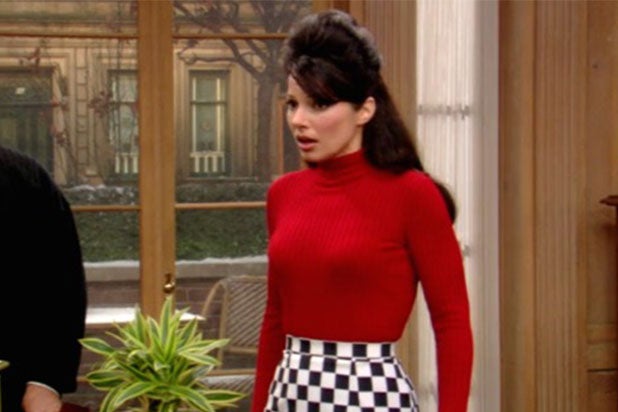
Fran Drescher led the cast of her sitcom "The Nanny" for a live, virtual table read of the 1993 pilot episode. Madeline Zima, Charles Shaughnessy, Jonathan Penner, Alex Sternin, Ann Hampton Callaway, DeeDee Rescher, Peter Marc Jacobson, Renee Taylor, Daniel Davis, Nicholle Tom, Lauren Lane, Rachel Chagall and Benjamin Salisbury all took part in the reunion.CBS
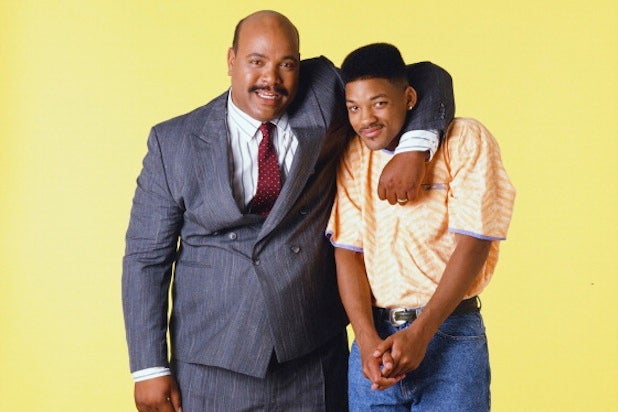
Will Smith reunited with his cast members from "The Fresh Prince" as part of the two-part season finale for his Snapchat series "Will at Home." He was joined by Alfonso Ribeiro, DJ Jazzy Jeff, Tatyana Ali, Karyn Parsons, Daphne Maxwell Reid and Joseph Marcell. Smith and "The Fresh Prince" cast also paid tribute to the actor who played Uncle Phil, James Avery. Smith recalled that the reason his character's name on the show is Will Smith is because Ribeiro told him that people would be calling him by his character's name for the rest of his life.Chris Cuffaio/NBCU Photo Bank
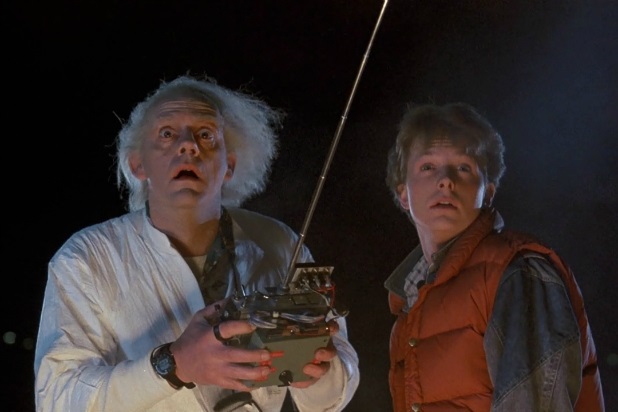
For the second episode of his "Reunited Apart" show, Josh Gad virtually reunited Michael J. Fox, Christopher Lloyd and Lea Thompson to talk what Gad called a "perfect" movie in "Back to the Future." Lloyd said the film was at one point supposed to be called "Spaceman From Pluto."Universal

Nearly the entire cast of NBC's sitcom "Community" will reunite on May 18 to do a live table read of the Season 5 episode "Cooperative Polygraphy." Series stars Joel McHale, Gillian Jacobs, Danny Pudi, Yvette Nicole Brown, Alison Brie, Jim Rash, Ken Jeong and Donald Glover, who left the series after season 5, will join creator Dan Harmon to read the Season 5 episode titled “Cooperative Polygraphy.” The special will stream on the “Community” YouTube page on May 18 at 2 p.m. PT and will also include a fan Q&A.NBC
Stars from “Chuck,” “The Nanny,” “Frasier,” “Taxi” and more have taken part in table reads and Q&A specials
View In Gallery